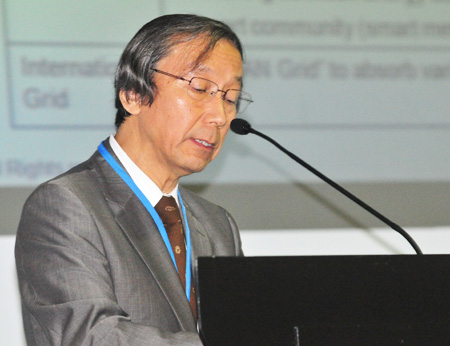
(Picture Credit: EMA)
Renewable energy is vital to Asia's energy mix even if the reality is that the renewable supply is limited.
Dr Steve Griffiths, Director of Institute Initiatives and Professor of Practice, Masdar Institute of UAE, highlighted the issues of renewable supply at the Asia Future Energy Forum's Innovation Panel as he briefed the audience on trends in Asia's urban population and energy consumption.
The realities of renewable supply were echoed by Masakasu Toyoda, Chairman & CEO of The Institute of Energy Economics of Japan (IEEJ), who pointed out that renewables accounts for only 4 percent of the Total Primary Energy Supply.
That said, renewables' importance cannot be underestimated and policies and strategies need to be tailored to different country circumstances. Toyoda explained, for example, how China and India had focused more on wind and hydro technologies as they develop their clean energy sectors.
He went on to highlight several issues relevant to the Asian renewables context: Smart grid technologies for matching of electricity demand and supply ; stabilising technologies for unstable solar, and wind energies and heat-utilising and energy-visualising technologies for energy savings.
Tsoi Mun Heng, Director, Energy Innovation Challenge Directorate at Singapore's National Research Foundation, said energy security, coping with climate change and the development of local economies are some of the key drivers for technology innovations. But at the foundation of all these aspirations, cost remained a core issue.
Participants from the floor voiced concerns of how the private sector can be incentivised to invest in clean energy. Tsoi illustrated how Singapore employs test-bed initiatives to allow businesses to market their products from the laboratory and experimental stage, while Toyoda called for governments to identify and subsidise industries that have renewable energy potential . In addressing the initiatives necessary to increase implementation of sustainable energy, Dr Griffiths said the characteristics of different countries and interests of industry partners must be taken into account. He emphasised the importance of context-specific solutions for less-developed countries, pointing out that while developed nations such as Singapore have high energy consumption, smaller countries with low energy demand could leverage microgrid potential to generate clean energy.
By :Ong Yu Hui, EMA